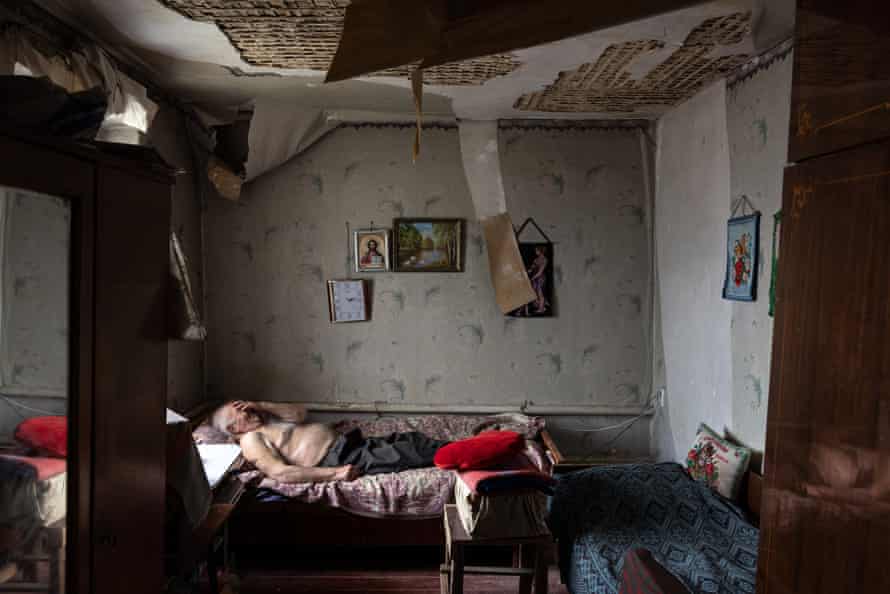Amnesty International has accused Russia of war crimes in Ukraine, saying attacks on Kharkiv – many using banned cluster bombs – had killed hundreds of civilians.
The rights group said in a report on Ukraine’s second biggest city published on Monday:
The repeated bombardments of residential neighbourhoods in Kharkiv are indiscriminate attacks which killed and injured hundreds of civilians, and as such constitute war crimes.
This is true both for the strikes carried out using cluster (munitions) as well as those conducted using other types of unguided rockets and unguided artillery shells.
The continued use of such inaccurate explosive weapons in populated civilian areas, in the knowledge that they are repeatedly causing large numbers of civilian casualties, may even amount to directing attacks against the civilian population.”
Amnesty said it had uncovered proof in Kharkiv of the repeated use by Russian forces of 9N210 and 9N235 cluster bombs and scatterable land mines, all of which are banned under international conventions.
Cluster bombs release dozens of bomblets or grenades in mid-air, scattering them indiscriminately over hundreds of square metres (yards).
Scatterable land mines combine “the worst possible attributes of cluster munitions and antipersonnel land mines”, Amnesty said.
Unguided artillery shells have a margin of error of over 100m.

The report, entitled ‘Anyone Can Die At Any Time’, details how Russian forces began targeting civilian areas of Kharkiv on the first day of the invasion on 24 February.
The “relentless” shelling continued for two months, wreaking “wholesale destruction” on the city of 1.5 million.
People have been killed in their homes and in the streets, in playgrounds and in cemeteries, while queueing for humanitarian aid, or shopping for food and medicine,” said Donatella Rovera, Amnesty International’s Senior Crisis Response Adviser.
“The repeated use of widely banned cluster munitions is shocking, and a further indication of utter disregard for civilian lives.
“The Russian forces responsible for these horrific attacks must be held accountable.”
Kharkiv’s Military Administration told Amnesty 606 civilians had been killed and 1,248 wounded in the region since the conflict began.
Russia and Ukraine are not parties to the international conventions banning cluster munitions and anti-personnel mines.
But, Amnesty stressed, “international humanitarian law prohibits indiscriminate attacks and the use of weapons that are indiscriminate by nature.
Launching indiscriminate attacks resulting in death or injury to civilians, or damage to civilian objects, constitutes war crimes.”



















































